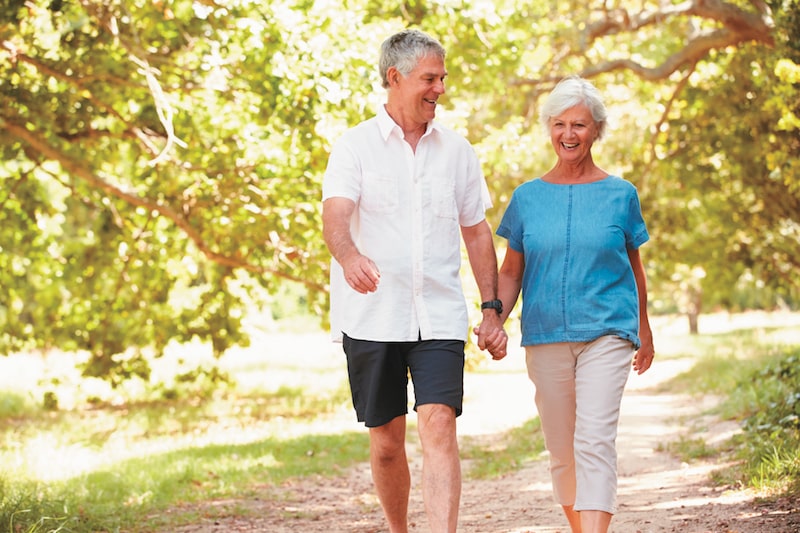Elderly health is more important than ever
We’re living longer than ever before, and the importance of elderly health is taking on a whole new significance as our population ages. Fortunately, there are a growing number of resources, tips and tools out there on how to be old and healthy. We’ve taken the liberty of distilling things down to four focus areas:
Your four focus areas
Stay in shape
Of all the senior care tips out there, maintaining your physical health is going to be your best bet at living an independent life.
Regular exercise also help you enhance strength, flexibility and balance – all key in preventing senior falls. A stronger, fitter body is also better able to ward off illness and bounce back faster from falls and other injuries.
Senior citizen exercise doesn’t have to be strenuous; aim for about 30 minutes of physical activity a day. Start off slow with a few minutes of walking and then gradually build from there as you feel stronger.
Eat smarter
Healthy eating for seniors can have its share of challenges. As your body changes, you may experience a decrease in appetite or have issues with chewing, swallowing and digestion. It also may be more difficult to shop for and prepare your own food.
Canada’s Food Guide generally recommends seniors incorporate fruits, veggies (fresh, frozen or canned), whole grain foods and lean proteins, like fish, chicken and beans. Dieticians of Canada also have a number of great resources and fact sheets when it comes to planning and prepping balanced meals.
If cooking at home isn’t possible, there are several home food delivery services out there that cater specifically to senior diets.
Make your home more accessible
A few key tweaks could help make your home safer and more accessible. Consider installing grab bars in your bathtub or shower or replace your existing tubs with walk-in tubs and showers. Build outdoor ramps in place of stairs and switch to anti-slip flooring material to help eliminate the risk of trips and falls.
Home monitoring systems and services can also keep you safe and secure if there’s a medical emergency or you’re otherwise unable to call for help.
Maintain a strong support system
Living independently doesn’t mean leading a lonely life. Studies have shown that seniors who reported feeling isolated or lonely showed higher mortality rates or major heath declines. Isolation is a major enemy of elderly health and can contribute to depression, poor health and can also speed up the onset of diseases like dementia.
On the other hand, maintaining a strong circle of friends – and an active social life – can help you stay safer, happier, sharper and healthier in the long run.
